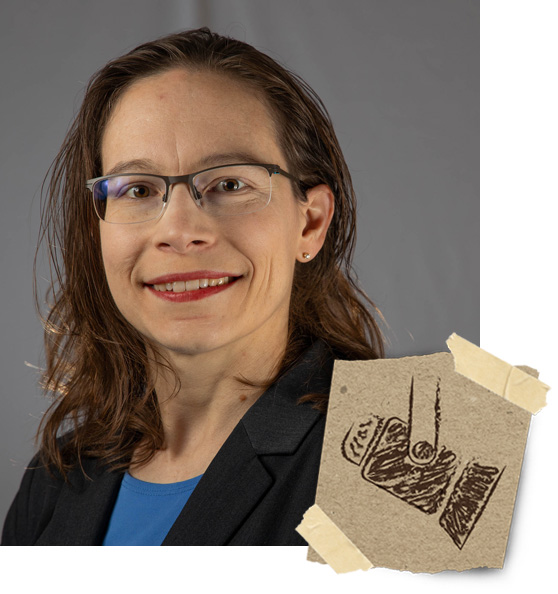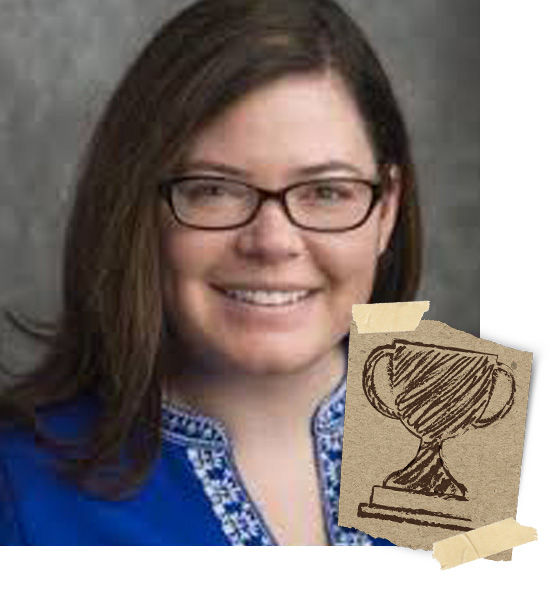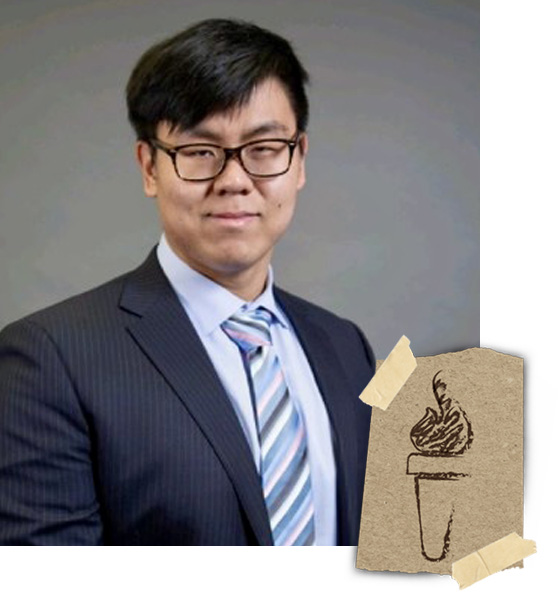Access Spotlight: Kristen Columbus
July 18, 2025 - Emily Jodway
 During the month of July, we commemorate the historic signing of the Americans with Disabilities Act on July 26, 1990, the first law of its kind ensuring equal access and protection against discrimination for individuals with disabilities. Disability Independence Day gives us an opportunity to celebrate the strides we have made in inclusivity while being reminded of the ways in which we can support the disabled community and create a more accessible society for all.
During the month of July, we commemorate the historic signing of the Americans with Disabilities Act on July 26, 1990, the first law of its kind ensuring equal access and protection against discrimination for individuals with disabilities. Disability Independence Day gives us an opportunity to celebrate the strides we have made in inclusivity while being reminded of the ways in which we can support the disabled community and create a more accessible society for all.
Our July Access Spotlight is Kristen Columbus, President and CEO of the Washtenaw Association for Community Advocacy (WACA) and a 2020 graduate of the School of Social Work. Her work includes advocacy, development and grant writing, and program planning and evaluation. Columbus’s interest in special education support and advocacy comes from her experiences as the mother of a young adult who lives with complex developmental disabilities.
Growing up, Columbus was interested in the fields of chemistry and biology, in part inspired by her chemist mother. Originally from Pittsburgh, she first arrived in Michigan with plans to earn her PhD in chemistry at the University of Michigan. Right after finishing her first year, she found out she was expecting her first child, a baby boy, and life began to change rapidly.
“When he was about six to eight months old, he started showing some signs of developmental delay and being behind on his milestones, and that took me off the chemistry path and on to where I am now,” she explained.
Columbus and her husband embarked on what would eventually become a lengthy and oftentimes difficult journey towards finding support and answers for their son. “When we first started to see these signs, we went down the path of appointments with specialists and therapies and testing, trying to figure out what was going on,” she said. Through the Early on Michigan special education program for infants and toddlers, Columbus was introduced to the world of raising a child with special needs. She also joined a parent support group. Feeling very alone at first, she was quickly welcomed by the other parents.
“That was my introduction to parents networking and advocating and helping each other out, so I started thinking beyond my own child, thinking about how I could help others’ kids, and learning about advocacy.”
When her son began school full time, Columbus got involved with several grassroots disability groups, which saw her become appointed to the Michigan Developmental Disabilities Council, first by Governor Jennifer Granholm and again by Governor Rick Snyder. While working for the Michigan Alliance for Families, she made the decision to go back to school, and chose Michigan State to earn her Master’s of Social Work on the Organization and Community Leadership (OCL) track.
“I had learned so much about policy advocacy and systems that people with disabilities need, and these systems can be so complicated if you’re someone that needs these services and you aren’t a social worker,” she explained. “I wanted to help people like me and other families navigate these systems, and social work seemed like the logical way to go.”
Columbus participated in MSU’s Weekend MSW program, a hybrid program that allowed her to continue working while earning her degree. She was also drawn to its emphasis on macro-level social work, which focuses on using social work for large-scale changes through policy and advocacy. During her time at MSU, Columbus was part of the Advocacy Scholars Program and Michigan Leadership Education in Neurodevelopmental and Related Disabilities (MI-LEND), a disability-focused leadership development program and a collaboration with seven other Michigan higher-ed institutes.
Columbus also had the opportunity to intern in the House of Representatives. At that time, the majority of student interns were law and public policy students hoping to work in politics. Social work students were few and far between.
“I think that’s something about social work that people don’t realize,” Columbus said. “There are so many social workers doing good work as therapists and clinicians, but also in policy spaces, advocacy organizations, places you don’t typically think about social workers being, but when you think about the impact of laws and policies on people who are vulnerable or marginalized, we’re really uniquely positioned to solve those kinds of issues.”
As the current president and CEO of the Washtenaw Association for Community Advocacy, whose main goal is to empower individuals with intellectual and developmental disabilities. The organization wants to see individuals with disabilities be able to participate fully in community and everyday life. “It’s about being able to do ordinary things, like go out to a restaurant without being blocked at the front door, or have a job, or get married if they choose to,” she explains. Washtenaw ACA accomplishes this utilizing advocacy as a service, rather than the commonly thought-of services such as assisted learning devices or hired caregivers. They advocate for children with disabilities in schools, disabled adults in the community, and local mental health programs and organizations.
“These individuals need advocacy to make sure they’re getting the right type of services, and enough of them that they need in order to live. These aren't luxuries, they’re things that are essential and necessary.”
Columbus has stayed motivated to help both these individuals and their caregivers through her work, knowing firsthand what it’s like to navigate these systems and how beneficial it can be to have someone with experience to help guide through the process. She also hopes that the advocacy work of her and others will inspire those in the community to be accepting of and aid in empowering people with disabilities.
“Communities have to recognize and accept that people with disabilities are a part of them, and have a right to be there,” she says. “Just because you’ve never had an experience with disability, it doesn’t mean that you never will. So to be a part of that community that is welcoming and accepting and affirming, I think that would be remarkable.”
With July 26 marking Disability Independence Day, Columbus returns to the idea of disabled individuals being able to live their lives and be part of their communities just like everyone else. “They’re not aiming to be anybody’s inspiration for doing ordinary things,” she explains. Community advocacy and bringing attention to the ways in which we still need to make society more accessible are crucial.
“That, to me, is their right— to have an ordinary life that’s fulfilling and meaningful and has the things and people in it that they want. People with disabilities deserve and have the legal right to those things. That’s why we have the ADA and it’s so important. That’s what might be the aspiration sometimes, the recognition of the ADA and that we need laws to bring that about and to make it a reality.”
Honorees’ views are their own and do not necessarily reflect those of the College of Social Science.
Read more:

Access Champion
Faculty/Staff
Dr. Sarah Dunkel-Jackson
Dr. Sarah Dunkel-Jackson is a professor in the Department of Human Development and Family Studies (HDFS) and our Access Champion this month. She is also involved with the MSU Research in Autism and Developmental Disabilities (RADD) Lab on campus.

Access Torch
Student
Bobicheng (Beau) Zhang
Beau Zhang is a PhD candidate studying cognitive neuroscience in the psychology department at Michigan State. Beau engages with various organizations on campus supports individuals with disabilities.

Access Matters
We strive to cultivate an inclusive and welcoming college environment that celebrates a diversity of people, ideas, and perspectives.

